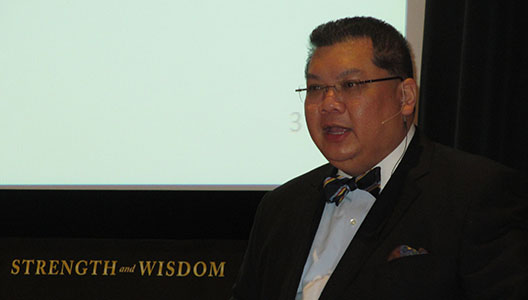 J. Peter Pham, director of the Atlantic Council’s Africa Center, spoke today on “Lessons from the Former Somalia” at the US Army War College in Carlisle, Pennsylvania. In his invited lecture to students in the College’s Department of National Security and Strategy, Pham discussed the role that state collapse, extremism, insurgency, piracy, famine, foreign intervention, and counterinsurgency have played in shaping the strategic landscape of “the world’s most spectacularly failed state” as well as the “wishful thinking” that continues to color the international community’s response to the ongoing crisis.
J. Peter Pham, director of the Atlantic Council’s Africa Center, spoke today on “Lessons from the Former Somalia” at the US Army War College in Carlisle, Pennsylvania. In his invited lecture to students in the College’s Department of National Security and Strategy, Pham discussed the role that state collapse, extremism, insurgency, piracy, famine, foreign intervention, and counterinsurgency have played in shaping the strategic landscape of “the world’s most spectacularly failed state” as well as the “wishful thinking” that continues to color the international community’s response to the ongoing crisis.
Pham’s presentation came, coincidentally, one day after US military forces launched an airstrike in southern Somalia targeting a “senior leader” of the Somali militant group al-Shabaab who was alleged to have ties to al-Qaeda.
Established in 1901, the US Army War College prepares selected military, civilian, and international leaders for the responsibilities of strategic leadership in a joint, interagency, intergovernmental, and multinational environment. The Strategic Studies Institute at the College recently published Pham’s monograph, State Collapse, Insurgency, and Counterinsurgency: Lessons from Somalia.
